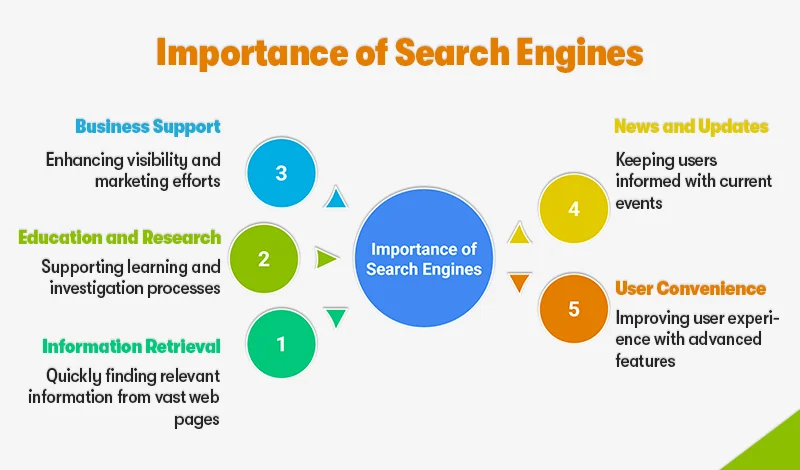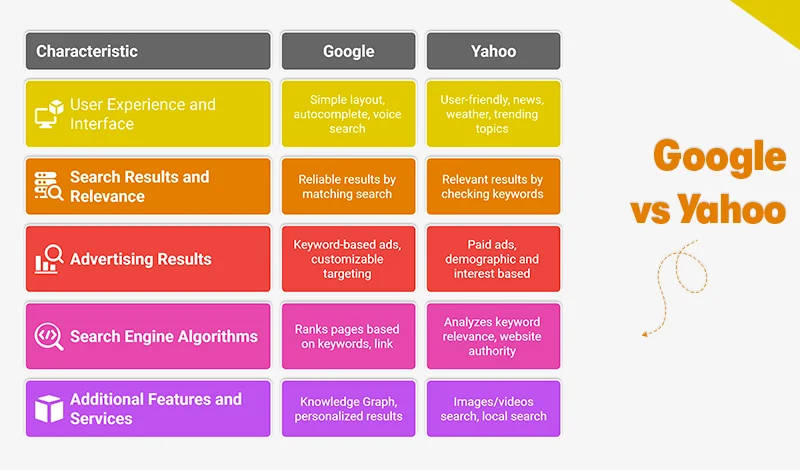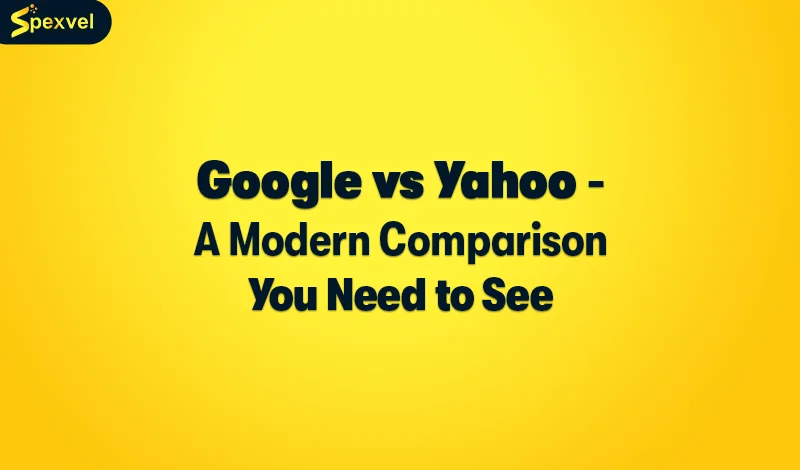Choosing the right search engine can shape your online experiences. As Google and Yahoo have long dominated the space, each provides distinct features that suit different user needs. Understanding their strength can help you make a more informed choice.
In this guide, you’ll learn about Google vs Yahoo comparison. We’ll explore their features, performances and what sets them apart in today’s modern digital world.
Understanding Google Search
It is considered as the world’s most popular search engine known for its accurate and user-friendly experience. It handles billions of queries daily, using advanced algorithms to deliver relevant and reliable results based on content quality, authority and user intent.
Google’s advanced search features allow users to access everything such as information, images, news and videos. Its constant algorithm updates ensure users get accurate, latest results. For global reach, focusing on region specific search engines and developing a strong international SEO strategy is essential.
Understanding Yahoo Search
Yahoo search provides an easy, smooth and user-friendly experience with access to web, images and video results. It also connects with Yahoo News to provide updates on the latest events. Though less dominant than Google, it remains a reliable alternative for everyday searches. Yahoo’s blend of media and search tools appeals to users seeking more than just links.
Importance of Search Engines

It acts as essential guides that help us efficiently explore and make sense of the vast online world.
- It helps users to quickly find relevant information from billions of web pages.
- Serve an important function in education, research and decision making.
- Support businesses through visibility, SEO and digital marketing.
- Keep users informed with the latest news, current updates and real-time data.
- Improve user convenience with features like voice search and personalized results.
Google vs Yahoo

Both provide unique search experiences through different features, results and tools. The following points present a detailed overview that highlights the key differences and comparison between them.
1: User experience and Interface
Google search has a simple layout with a large search bar which makes it quick and easy to find what you are looking for. It is also providing tools such as autocomplete, voice search and filters that make searching faster and more convenient for users.
Yahoo has a user-friendly interface which is easy to use. Along with search results, it provides added features like news, weather and trending topics, that make it a more convenient all in one platform. While its algorithm is not as advanced as Google’s, it still delivers fairly relevant results.
2: Search Results and Relevance
Google helps you find reliable results by matching your search with relevant pages and seeing how users responded to them, which usually leads you to the most helpful contents.
Yahoo uses its own algorithms to show relevant results by checking keywords, content quality and user activity. However, its results may not be as precise as Google. For those looking for the most accurate, and reliable results, Google is often the preferred choice.
3: Advertising Results
Google Search Advertising helps businesses reach targeted audiences through keyword based ads in search results. With customizable targeting by demographics, interests and location, it increases visibility and traffic. Detailed analytics also help track performance and optimize conversions.
Yahoo Search Advertising helps businesses reach their right audience through paid ads in texts, images or video format. This platform supports demographic and interest based targeting to improve traffic, while built in budgeting and tracking tools help optimize campaigns.
4: Search Engine Algorithms
Google search algorithm ranks web pages based on keywords, link quality and user engagement. PageRank plays a major role by measuring a page’s importance through incoming links. It also factors in site speed, and mobile compatibility.
Yahoo’s search algorithm helps to deliver precise results by analyzing keyword relevance, website authority, user engagement, and social signals. It also provides localized content by considering user location.
5: Additional Features and Services
Google improves the user experience with quick information from the Knowledge Graph, personalized results based on user history and easy access to image and video content.
On the other hand, Yahoo improves the search experience with features like images and videos search for easy access to visual content, local search for nearby businesses and services and quick access to financial information such as stock quotes and market news.
Conclusion
In today’s digital landscape, both Google and Yahoo provide unique search experiences but Google remains the dominant choice due to its advanced algorithms, speed and precision. Its clean interface, personalized results and powerful advertising tools that make it highly effective for both users and businesses.
Yahoo, not as powerful, still appeals to users seeking an all in one platform with integrated features like news, finance and trending content. Its search results are helpful, though they don’t quite match the accuracy of Google’s. In the end, the better platform depends on what the user values more, precision and performance or a broader content experience.


